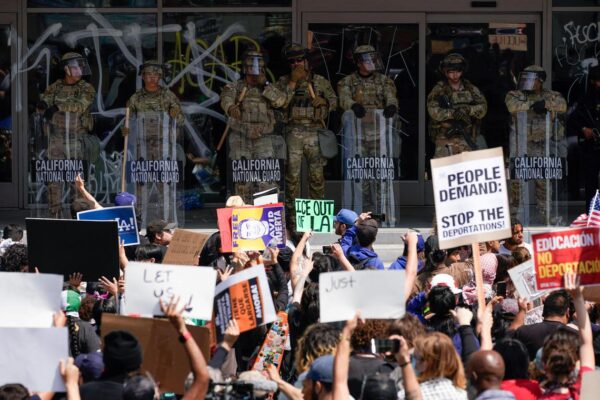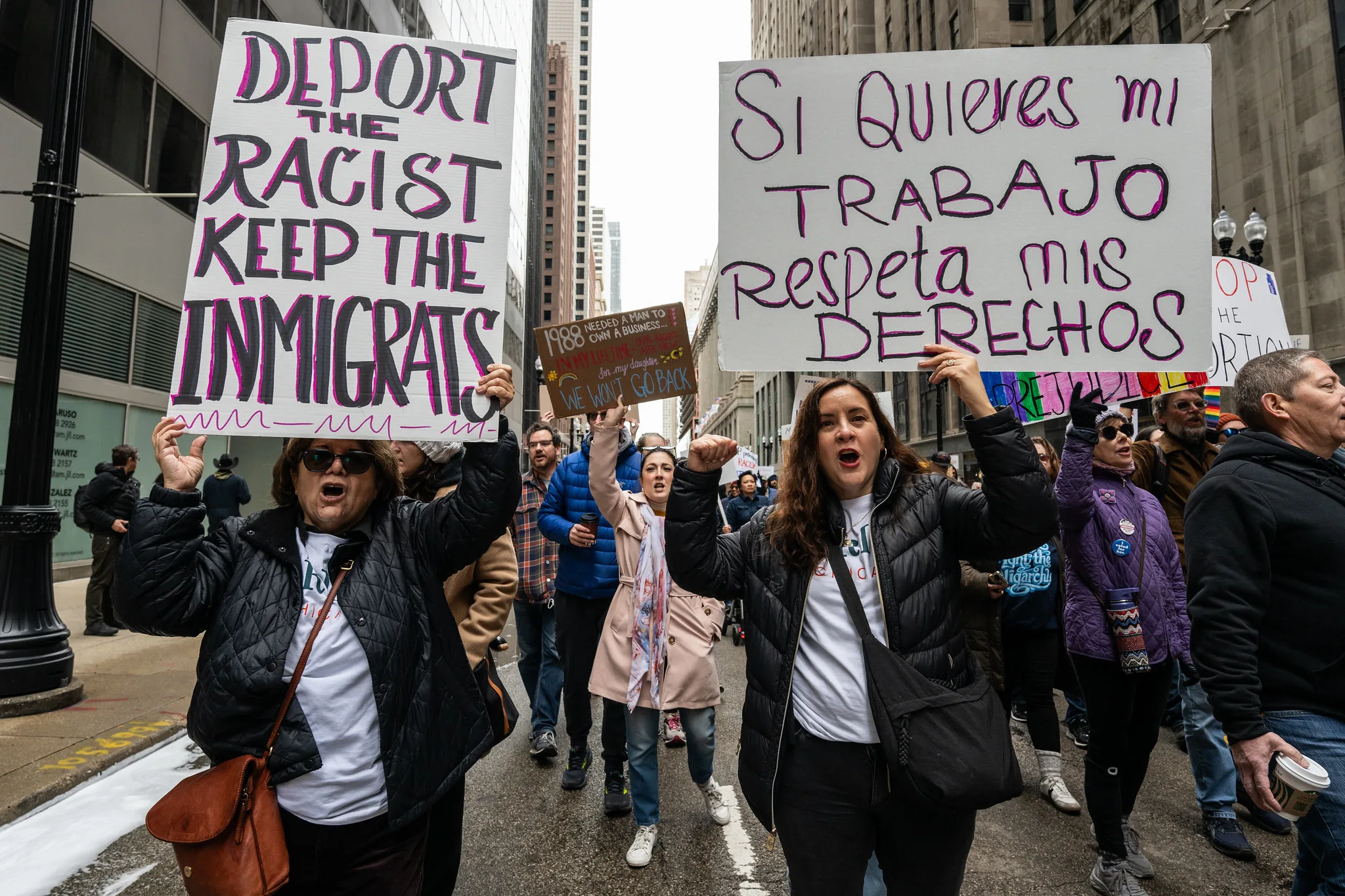Tensions rise in Los Angeles as immigration protests lead to military presence. Here’s what’s happening and how the city is responding.

A City Under Pressure
Los Angeles is not its usual self.
The streets that once echoed with music, food trucks, and laughter now carry the sounds of sirens, shouting, and helicopters.
The cause? A wave of immigration protests that have quickly become a national crisis.
Over the past few weeks, thousands of people have marched through LA’s streets.
They’re not just marching for policy changes — they’re marching for their lives.
Most of the protestors are immigrants, families, students, and activists.
They’re standing up against a system they feel is unfair and inhumane.
Why Are People Protesting?
Behind every protest sign is a real story.
A mother afraid she’ll be taken from her kids.
A teenager who fears being sent to a country they barely remember.
A father who has worked here for 20 years — now told to leave in 20 days.
These stories are everywhere in LA right now.
Immigration raids have intensified.
People are being picked up from schools, workplaces, and even hospitals.
There’s fear. Confusion. Anger.
And above all — a sense of deep injustice.
As one protester said,
“They treat us like criminals. But we build their homes, raise their children, and serve their food.”
For many, this fight is not about legal papers —
It’s about human dignity.
Military on the Streets of LA
As protests grew louder, Washington responded with force.
The National Guard was deployed to several parts of Los Angeles.
Soon after, reports emerged of Marine units patrolling key areas.
The response was swift. And to many — it was terrifying.
Helicopters now hover over schools and neighborhoods.
Military trucks block roads in East LA and near downtown.
Checkpoints have been set up. Some residents are being asked for ID just to enter their own buildings.
Many locals now say the city feels more like a war zone than home.
Voices from the Ground
The most powerful voices are those who live through this daily.
Maria, a teacher in Boyle Heights, shared:
“I’ve seen kids break down in class. They’re scared their parents won’t be home when they get back. How can I teach math when their minds are full of fear?”
David, a protester near MacArthur Park, said:
“We don’t want violence. We want respect. We want to be treated like people — not threats.”
Some communities have even organized neighborhood watches.
Not to stop crime — but to warn each other if immigration officers arrive.
A City Divided
The situation has created deep divisions.
Some citizens support the government, believing strong enforcement is necessary.
They say undocumented immigration has gone too far.
But others believe this crackdown is excessive, cruel, and political.
They argue that military force in peaceful neighborhoods is a step too far.
What’s heartbreaking is that the divide is growing even within homes.
Families, friends, and coworkers are no longer on the same page.
The Bigger Picture
This crisis in LA is part of something much larger.
It reflects a nationwide debate on immigration, human rights, and the role of the government.
Similar tensions have surfaced globally — from Gaza’s aid boat crisis to the European border conflicts.
We are witnessing a global shift in how nations handle identity, belonging, and power.
And right in the middle of it — is Los Angeles.
If you haven’t already, read our earlier in-depth post on how the LA immigration protests began.
It will help you understand the root of the fire that’s burning today.
What Happens Next?
No one knows exactly.
City leaders are calling for calm, but new protest marches are planned every weekend.
Some schools have moved to online classes.
Many families are avoiding hospitals, police stations, and even public parks — just to stay safe.
There is hope too.
Volunteers are setting up shelters.
Legal aid groups are helping immigrants know their rights.
Artists and musicians are using their platforms to spread awareness and unity.
But the fear still lingers.
People now look over their shoulders when they walk.
Children cry more often.
And silence, once comforting, now feels heavy.
Final Thoughts
Los Angeles is more than a city — it’s a symbol.
A symbol of diversity, of struggle, and of hope.
Today, that symbol is being tested.
Not just by laws or politics, but by how we treat each other as humans.
This is not just a political moment — it’s a human one.
We must not turn away.
We must listen. We must care.
Because change doesn’t come from silence.
It comes from people — real people — standing up and being heard.
For the latest developments, visit America112 News for live updates.

